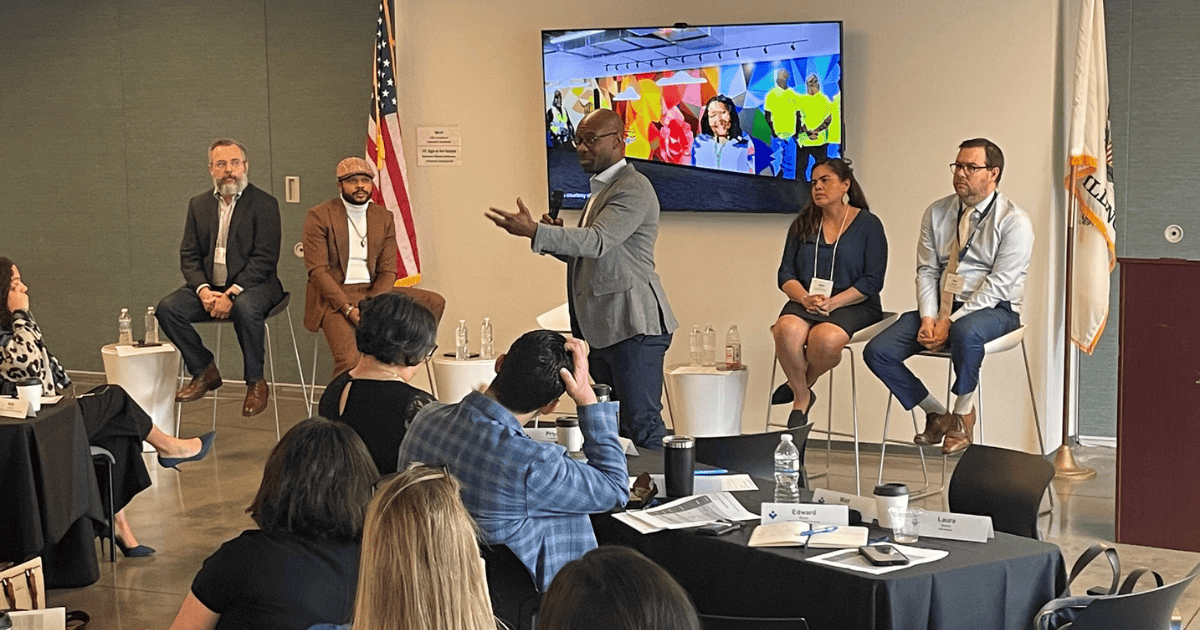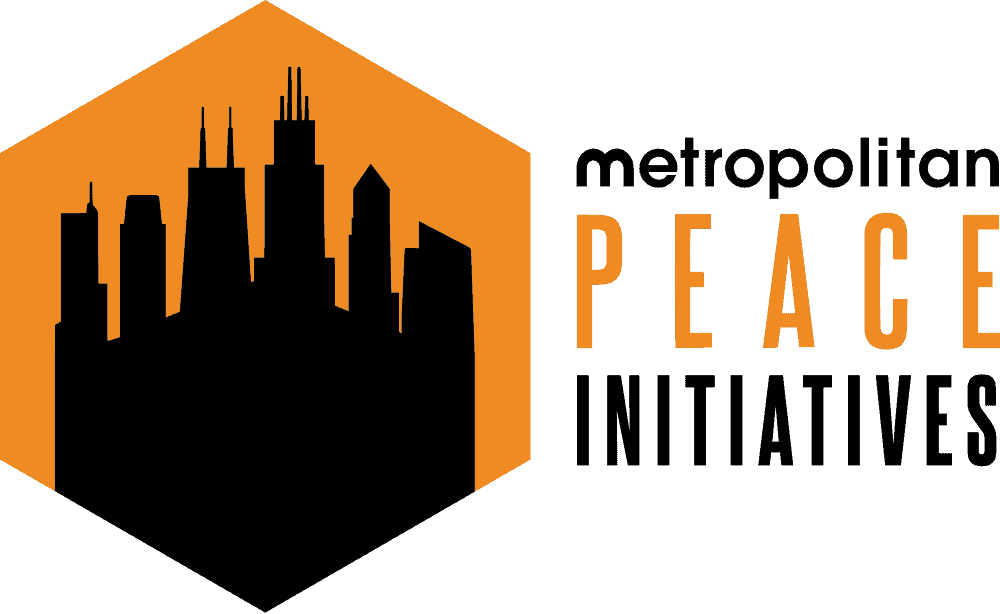CVI Experts Discuss Public Safety at ‘Civilian Infrastructure’ Panel

Community violence intervention (CVI) experts from across Chicago came together for a panel discussion entitled “Civilian Infrastructure for Public Safety” on Friday, April 12, 2024 at UCAN headquarters in Homan Square. Hosted by Leadership Greater Chicago, the conversation aimed to highlight how organizations such as the coalition of Communities Partnering 4 Peace (CP4P), Metropolitan Peace Initiatives (MPI), and Chicago CRED are playing their part in addressing gun violence.
Panelists included MPI Director of Program Operations Edith Lule, Chicago CRED Director of Strategic Initiatives Jalen Arthur, Deputy Commissioner of the Chicago Department of Health Matt Richards, and Faculty Director of Northwestern University’s Center for Neighborhood Engaged Research & Science (CORNERS) Andrew Papachristos. The panel was moderated by MPI Executive Director Vaughn Bryant.
The conversation highlighted the ways in which CVI efforts around the city have made an impact in helping to reduce gun violence. Lule specifically touched on the work of MPI and CP4P, a coalition of 13 non-profit organizations focused on gun violence prevention across 28 Chicago neighborhoods. Its strategy consists of four core pillars: a philosophy of nonviolence, trauma-informed care, hyperlocal collaboration, and restorative justice.
Papachristos also spoke to what the research is saying about the CVI model. In 2023, CORNERS found that CP4P had an impact in Chicago from July 2017 to December 2021 in reducing gun violence in Chicago. Key findings from the evaluation showed that CP4P: reaches the right people; lowers rates of gunshot victimization among participants; improves access to employment, education, and other services; and leads to safer neighborhoods.
CP4P/MPI services such as street outreach, behavioral health, workforce development, legal aid, and organizational development have contributed to a step in the right direction.
